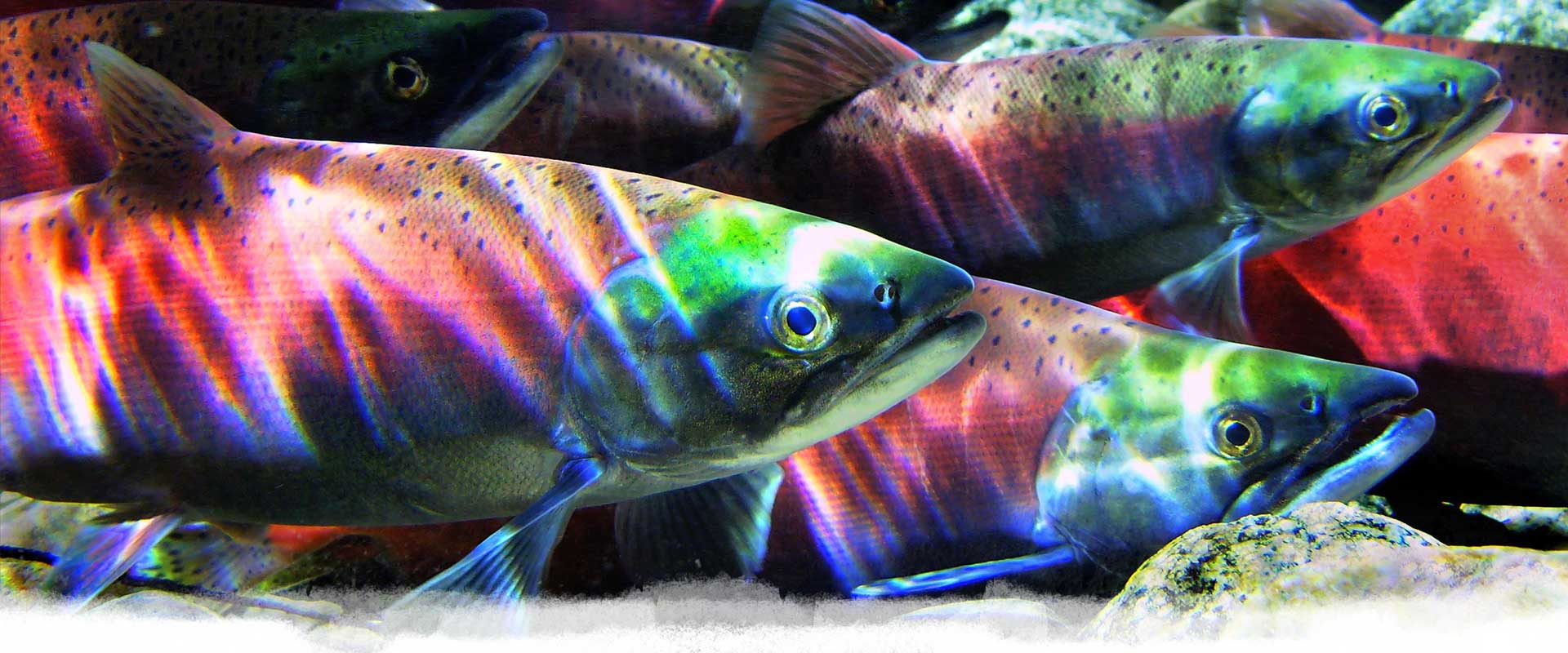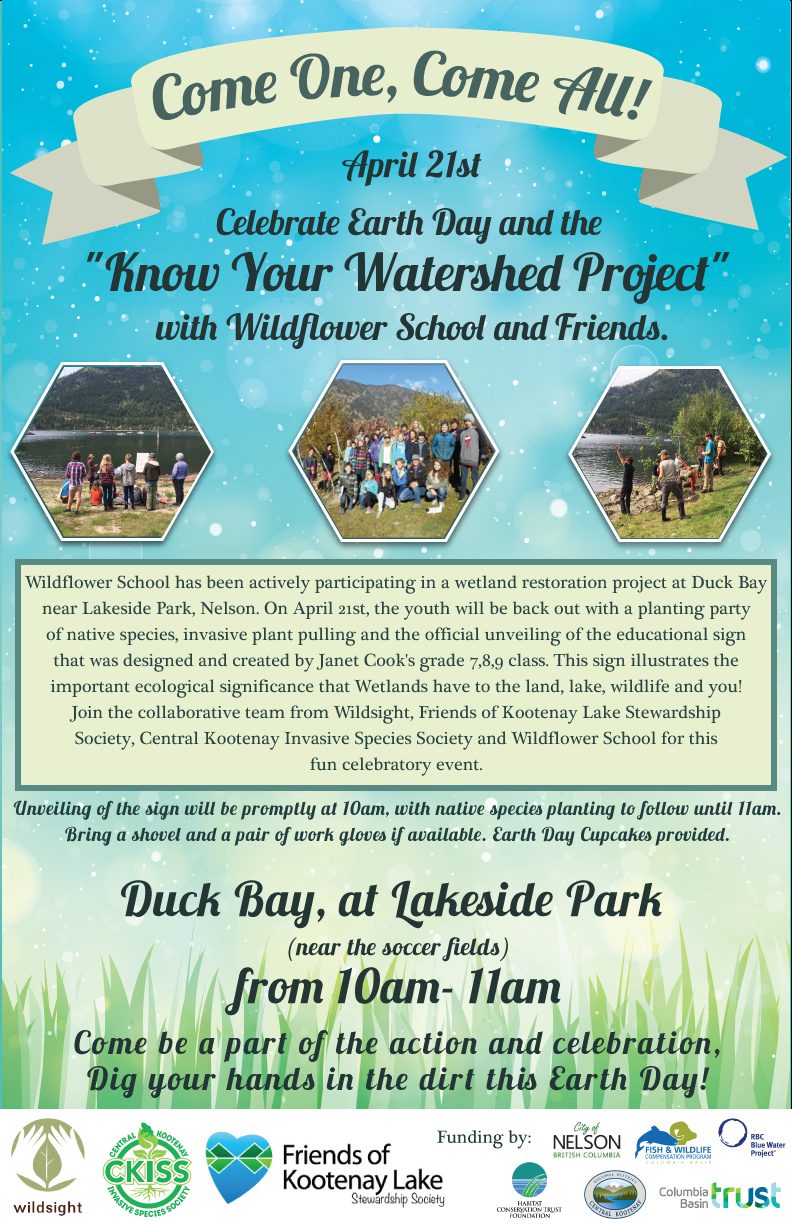
25 Apr Earth Day 2016- “Know Your Watershed” Project at Duck Bay
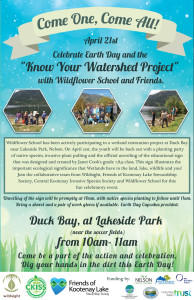 Know Your Watershed is a regionally-based Columbia Basin Trust program, which is offered throughout the Basin. The program, administered and delivered by Wildsight with collaboration from the Friends of Kootenay Lake Stewardship Society and Central Kootenay Invasive Species Society, supports students in learning where their water comes from, how it is used and affected as it moves through their community, and what happens to it after they have used it. Through classroom visits and a full-day field trip, students develop a n understanding of what a watershed is, and how we are all connected by water in the Columbia Basin. Inspired by their watershed experience, students are empowered to develop and implement a Student Action Project to take their learning further, as active citizens in their community. In Nelson, the Wildflower Middle School students from Janet Cook’s class toured the municipal watershed with Know Your Watershed educator, Monica Nissen. They visited Anderson Creek and discovered how to test water quality, observing and testing physical, chemical and biological parameters. They were guided on a visit of the Mountain Station Reservoir by Colin Innes, Director of Public Works and Utilities, where they learned how much water is stored, treated and distributed to residents. They discussed the importance of conserving water, recognizing that only 2-3 days’ supply is actually stored in the reservoir. City staff gave the students a tour of the Grohman Wastewater Treatment Facility, which was an opportunity to consider how much water is actually used by Nelson residents per day, and how water quality is affected by our use of water. Local stewardship groups were partners in the learning as well- Claire de la Salle, from Friends of Kootenay Lake, and Raegan Mallinson, from Living Lakes Canada, offered expertise on efforts to monitor and conserve water quality in Kootenay Lake, and on the value of wetlands, in filtering water, supporting water quality, and also providing habitat for many important species of flora and fauna.
Know Your Watershed is a regionally-based Columbia Basin Trust program, which is offered throughout the Basin. The program, administered and delivered by Wildsight with collaboration from the Friends of Kootenay Lake Stewardship Society and Central Kootenay Invasive Species Society, supports students in learning where their water comes from, how it is used and affected as it moves through their community, and what happens to it after they have used it. Through classroom visits and a full-day field trip, students develop a n understanding of what a watershed is, and how we are all connected by water in the Columbia Basin. Inspired by their watershed experience, students are empowered to develop and implement a Student Action Project to take their learning further, as active citizens in their community. In Nelson, the Wildflower Middle School students from Janet Cook’s class toured the municipal watershed with Know Your Watershed educator, Monica Nissen. They visited Anderson Creek and discovered how to test water quality, observing and testing physical, chemical and biological parameters. They were guided on a visit of the Mountain Station Reservoir by Colin Innes, Director of Public Works and Utilities, where they learned how much water is stored, treated and distributed to residents. They discussed the importance of conserving water, recognizing that only 2-3 days’ supply is actually stored in the reservoir. City staff gave the students a tour of the Grohman Wastewater Treatment Facility, which was an opportunity to consider how much water is actually used by Nelson residents per day, and how water quality is affected by our use of water. Local stewardship groups were partners in the learning as well- Claire de la Salle, from Friends of Kootenay Lake, and Raegan Mallinson, from Living Lakes Canada, offered expertise on efforts to monitor and conserve water quality in Kootenay Lake, and on the value of wetlands, in filtering water, supporting water quality, and also providing habitat for many important species of flora and fauna.
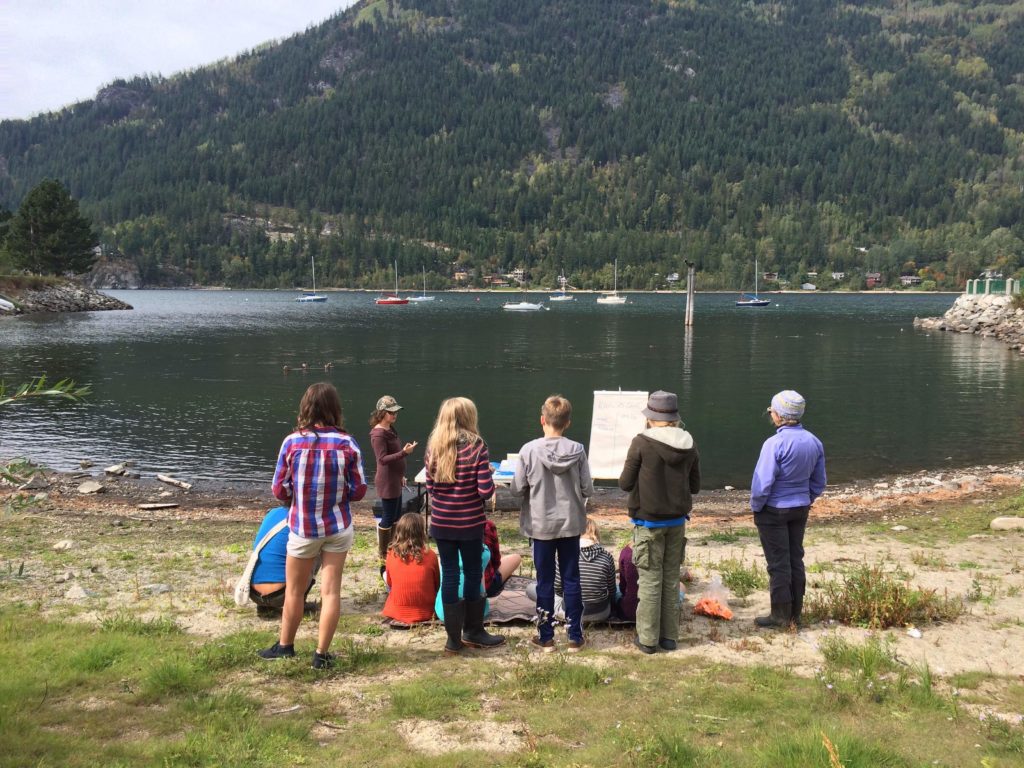
Learning about water quality monitoring from Friends of Kootenay Lake Program Coordinator Claire de la Salle.
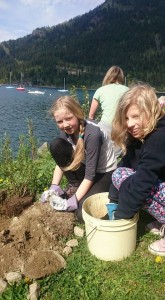
Wildflower School Students
Students in the Wildflower Middle School class decided to ‘adopt’ Duck Bay, in Kootenay Lake, and to focus additional learning activities and stewardship projects on this area. In collaboration with community partners such as the Friends of Kootenay Lake Stewardship Society and Central Kootenay Invasive Species Society, the students learn about this section of the lakeshore, and about the adjoining wetland. One field day was a ‘wetland discovery day’ which involved learning about the impact of invasive species, with Laurie Frankcom from Central Kootenay Invasive Species Society, planting native trees with Thor Smestad from TreeBear Ecological Services, and learning about lake water quality sampling protocols with Claire and Raegan. Local artist and graphic designer, Catherine McIntosh supported students’ learning about how to do scientific drawings of the local flora and fauna, and to represent their art in the form of an interpretive sign. This sign was also supplemented with information about the values of wetlands in maintaining water quality, which students researched, wrote and edited. The City of Nelson supported the students by inviting them to post their sign at Duck Bay for public-awareness-raising. A group of students also designed and carried out a scientific study, collecting water quality data to examine the impacts storm drain runoff on water quality in the lake. This data will be incorporated into longer-term research that will also investigate the value of constructed wetlands in mitigating the effects of storm drain runoff.
The Wildflower students who participated in this Know Your Watershed project have helped to inform new directions for the program, by piloting an extended, cross-curricular project-based learning experience. Their work was highlighted at the community event and sign unveiling at Duck Bay this April 21st in honor of their efforts and Earth Day. Over 30 students, 5 staff and 10 community supporters planted 4 species and 22 native plants in the Duck Bay Riparian Area and Wetland Complex area. The sign generated by the students will be on display permanently on the Lakeside trail. So, head down to Duck Bay, at Lakeside Park to appreciate the beautified shoreline and wetland restoration project and take a peek at the incredible work of the Wildflower students and their supporters.
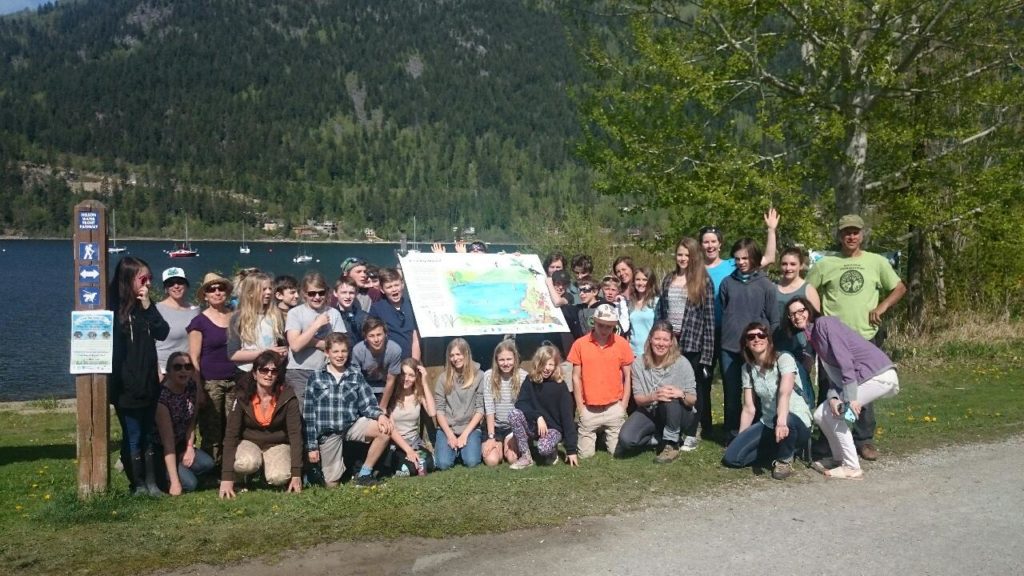
Wetland and Storm Water Treatment outreach sign, designed and researched by Wildflower students. The sign unveiled to class and community on April 21, 2016.

